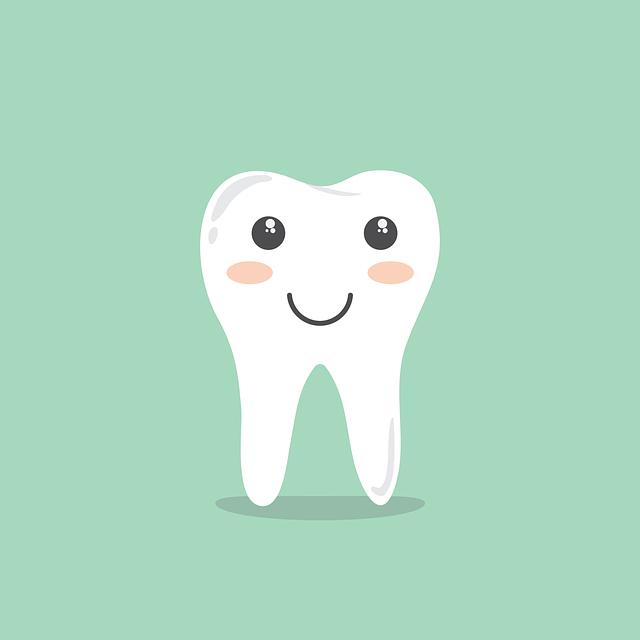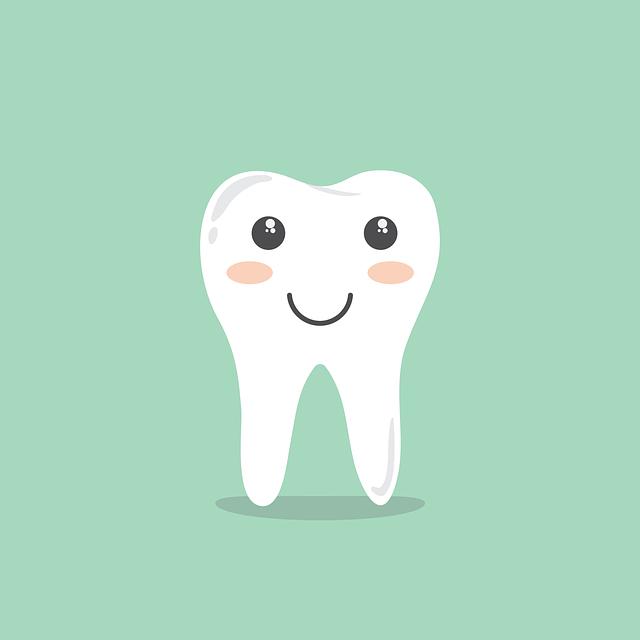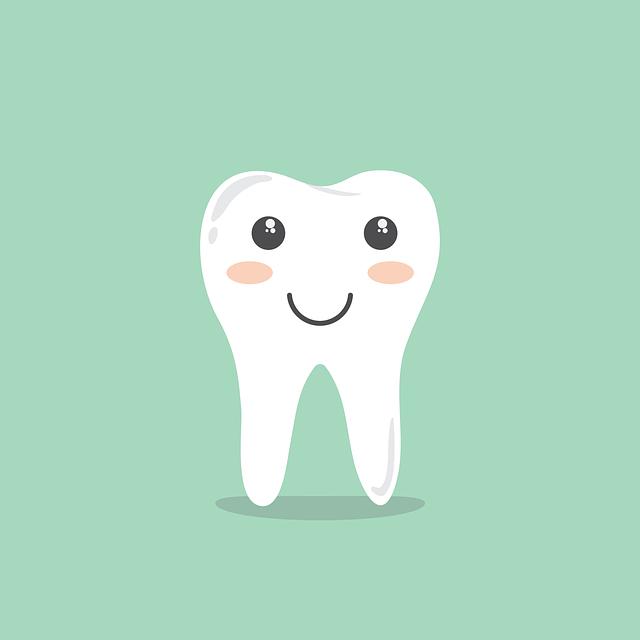What Does Salt Water Do to Your Teeth: Myths Busted
Have you ever wondered about the effect of salt water on your teeth? With so many conflicting opinions and myths circulating, it’s time to separate fact from fiction. In this article, we will debunk common misconceptions and provide you with a clear understanding of what salt water really does to your pearly whites. Armed with accurate knowledge, you can confidently take care of your dental health without falling prey to unfounded claims. So, let’s dive in and get to the bottom of this salty dental dilemma!
1. The Truth Unveiled: Debunking Common Myths About the Effects of Salt Water on Your Teeth
There are several common myths circulating about the effects of salt water on your teeth, but it’s time to set the record straight. Let’s debunk these misconceptions once and for all.
Myth 1: Salt water can whiten your teeth.
This is a common belief, but unfortunately, it’s not true. Salt water does not possess any whitening properties. While it may help to remove some surface stains temporarily, it is not a substitute for professional teeth whitening treatments or even regular brushing with toothpaste. If you’re looking to brighten your smile, it’s best to consult a dentist for safe and effective options.
Myth 2: Salt water can cure gum disease.
While salt water rinses can provide temporary relief for gum inflammation or irritation, they cannot cure gum disease. Gum disease is a serious condition that requires professional treatment from a dentist or periodontist. Salt water rinses may help with symptoms, but they should never replace proper dental care or delay necessary treatments.
Myth 3: Salt water is safe for daily use.
Using salt water as a rinse occasionally is generally safe. However, using it daily or excessively can have negative effects on your oral health. Salt water is highly abrasive and can erode tooth enamel over time, leading to tooth sensitivity and other dental issues. It’s important to maintain a balanced oral care routine that includes brushing, flossing, and regular dental check-ups instead of relying solely on salt water rinses.

2. Separating Fact from Fiction: Exploring the Real Impact of Salt Water on Dental Health
Salt water is often praised for its benefits in promoting dental health, but how much of this is fact and how much is fiction? Let’s dive into the real impact of salt water on our oral health and separate the truth from the myths.
1. Reduces inflammation: Salt water has been shown to have anti-inflammatory properties, making it an effective remedy for soothing gum inflammation. Gargling with warm salt water can help reduce swelling and pain caused by gum disease or mouth sores.
2. Promotes healing: Salt water can aid in the healing process of minor oral wounds. The salt in the water helps to cleanse the area and prevent the growth of bacteria, promoting faster healing of cuts or sores in the mouth.
3. Freshens breath: Rinsing your mouth with salt water can help neutralize odors and freshen your breath. This is due to the antibacterial properties of salt, which can help kill odor-causing bacteria in the mouth.
It’s important to note that while salt water can provide some benefits for dental health, it is not a substitute for regular oral hygiene practices such as brushing, flossing, and regular dental check-ups. Additionally, it is crucial to use the correct concentration of salt in the water to avoid any potential negative effects. Remember, maintaining a well-rounded oral care routine is the key to achieving optimal dental health.
3. The Science Behind Salt Water and Dental Care: Understanding the Facts
Understanding the science behind salt water and dental care is essential for maintaining optimal oral health. Salt water, also known as saline solution, has been used for centuries as a natural remedy for various ailments, including dental issues. Here’s what you need to know:
Benefits of Salt Water for Dental Care:
- Antibacterial properties: Salt water can help kill bacteria in the mouth, reducing the risk of infections and gum disease.
- Reduces inflammation: Gargling with salt water can soothe inflamed gums and alleviate discomfort caused by oral infections.
- Promotes healing: Salt water can aid in the healing process of oral wounds, such as canker sores or after dental procedures.
How Salt Water Works:
When salt is dissolved in water, it creates a saline solution. This solution has a higher salt concentration than the cells in your mouth, making it a hypertonic solution. This hypertonic environment can draw out fluids from bacterial cells, causing them to shrink and die. Additionally, salt water can help dislodge food particles stuck between teeth and reduce plaque buildup.
How to Use Salt Water for Dental Care:
- Dissolve half a teaspoon of salt in a cup of warm water.
- Swish the salt water around your mouth for 30-60 seconds, focusing on the affected areas.
- Spit out the solution and rinse your mouth with plain water.
- Repeat this process 2-3 times a day or as directed by your dentist.
While salt water can provide temporary relief and contribute to maintaining good oral hygiene, it’s important to remember that it is not a substitute for regular dental care. Make sure to schedule regular check-ups with your dentist for comprehensive oral health care.

4. Dispelling the Misconceptions: How Salt Water Really Affects Your Teeth
Salt water is often believed to be harmful to teeth due to its high sodium content. However, it’s time to dispel these misconceptions and shed light on the true effects of salt water on dental health. Contrary to popular belief, salt water can actually have several beneficial effects on your teeth and gums, as long as it is used properly and in moderation.
1. Natural Mouthwash: Salt water can be used as a natural mouthwash to effectively rinse away bacteria and promote oral hygiene. It acts as a gentle antiseptic, helping to reduce inflammation and heal minor oral wounds, such as gum sores or ulcers. Regular rinsing with salt water can also help alleviate bad breath.
2. Gum Health: Salt water has a soothing effect on the gums, making it a useful remedy for gum infections or gum diseases like gingivitis. Its natural antibacterial properties can help reduce inflammation, swelling, and pain associated with these conditions. It is important to note that salt water should not replace regular brushing and flossing, but can be used as a supplementary treatment.
3. Tooth Sensitivity: If you suffer from tooth sensitivity, rinsing with salt water can provide temporary relief. The salt acts as a desensitizing agent, reducing the pain and discomfort caused by exposed tooth roots or worn enamel. However, it is crucial to consult with a dental professional to address the underlying cause of tooth sensitivity for long-term solutions.

5. The Role of Saline Solutions in Oral Health: What You Need to Know
In maintaining good oral health, saline solutions play a crucial role. Saline solutions, also known as saltwater rinses, are a simple yet effective way to promote oral hygiene and combat various dental issues. Here’s what you need to know:
1. Reducing inflammation: Saline solutions help reduce inflammation in the mouth, making them beneficial for individuals with gum disease, gingivitis, or mouth sores. The saltwater rinse can help alleviate discomfort, swelling, and redness, promoting faster healing.
2. Killing bacteria: Saltwater rinses have antimicrobial properties, making them effective in killing bacteria that cause bad breath, tooth decay, and gum infections. By eliminating harmful bacteria, saline solutions can help maintain a healthier oral environment.
3. Soothing oral irritations: Saltwater rinses can provide relief from various oral irritations like canker sores, sore throat, or post-dental treatment discomfort. The saline solution helps cleanse the affected area, reducing pain and promoting a soothing sensation.

6. Salt Water Rinse: Myth or Miracle? Examining the Dental Benefits
When it comes to maintaining good oral hygiene, there are countless products and techniques available. One method that has gained popularity is the salt water rinse. But does it live up to the hype? Let’s take a closer look at the dental benefits of this simple yet intriguing practice.
1. Natural antibacterial properties: Salt has long been recognized for its antibacterial properties. When dissolved in water, it creates a solution that can help kill harmful bacteria in the mouth. This can be particularly beneficial for those suffering from gum infections or mouth ulcers.
2. Reduced inflammation: Another advantage of salt water rinses is their ability to reduce inflammation. Swishing a salt water solution around the mouth can help alleviate swelling and discomfort caused by gum disease or oral injuries. It’s a natural and cost-effective way to soothe oral tissues.
3. Promotes healing: Salt water rinses can also aid in the healing process. The gentle saline solution can help promote the growth of new tissue and speed up the recovery of wounds, such as after tooth extraction or oral surgery.
While salt water rinses may not be a miracle cure for all dental issues, they do offer several notable benefits. Incorporating this practice into your oral hygiene routine can be a simple yet effective way to enhance your dental health. As always, it’s essential to consult with your dentist for personalized advice based on your specific dental needs.
7. Salt Water vs. Tooth Decay: Unveiling the Effects on Enamel and Cavities
When it comes to dental health, the impact of salt water on tooth decay is a topic of interest. Many people wonder whether salt water can help prevent cavities and protect enamel. Let’s dive into the facts and uncover the effects of salt water on our teeth.
1. Salt water as a natural mouthwash: Salt water has been used as a natural remedy for oral hygiene for centuries. Its antibacterial properties can help reduce harmful bacteria in the mouth, which can contribute to tooth decay. Rinsing your mouth with a salt water solution can act as a mild mouthwash, promoting a healthier oral environment.
2. Salt water and enamel protection: Enamel, the outer layer of our teeth, is susceptible to erosion caused by acids produced by bacteria. Salt water rinses can help neutralize these acids, minimizing the risk of enamel erosion and strengthening the teeth. However, it’s important to note that salt water alone cannot replace proper oral hygiene practices like brushing and flossing.
3. Salt water and cavity prevention: While salt water rinses can aid in maintaining oral health, they should not be considered a standalone solution for preventing cavities. Regular dental check-ups, a balanced diet, and good oral hygiene practices remain crucial in cavity prevention. Salt water can be a beneficial addition to your oral care routine, but it should complement, not replace, other preventive measures.
8. Is Salt Water a Friend or Foe to Your Teeth? The Truth You Should Know
Salt water is often praised for its numerous health benefits, but when it comes to our teeth, is it really a friend or foe? Let’s uncover the truth behind this widely debated topic.
Friend: Salt water can act as a natural mouthwash, killing bacteria and promoting oral health. The saline solution helps to neutralize acids in the mouth, reducing the risk of tooth decay and gum disease. Additionally, gargling with salt water can provide temporary relief for sore throats and mouth ulcers, soothing any discomfort.
Foe: While salt water can have its benefits, it’s essential to use it in moderation. Excessive exposure to salt water can lead to enamel erosion, as the high sodium content can weaken the protective layer of the teeth. It’s crucial to strike a balance and not overdo it when using salt water as a mouth rinse.
Conclusion: Salt water can be a friend to our teeth when used correctly. Incorporating it as part of your oral hygiene routine, alongside regular brushing and flossing, can contribute to a healthier mouth. However, it’s important to be mindful of the potential negative effects of excessive salt water exposure. As with any dental care practice, consulting with a dentist is always recommended to ensure the best oral health.
9. Can Salt Water Whiten Your Teeth? Debunking the Teeth Whitening Myths
There are numerous myths surrounding teeth whitening, and one of the most common ones is that salt water can whiten your teeth. However, let’s debunk this myth once and for all.
Contrary to popular belief, salt water does not possess any significant teeth whitening properties. While it may have some cleansing properties due to its mild abrasive nature, it is not capable of removing deep stains or altering the natural color of your teeth.
When it comes to achieving a brighter smile, it’s important to rely on proven methods. Professional teeth whitening treatments, either at the dentist’s office or using dentist-recommended products at home, are the most effective and safe ways to whiten your teeth. These treatments are specifically designed to penetrate the enamel and break down stubborn stains, giving you noticeable and long-lasting results.
Remember, it’s always best to consult with your dentist before attempting any teeth whitening method to ensure its suitability for your oral health. Don’t fall for the salt water myth; trust in science-backed whitening techniques for a confident, radiant smile!
10. The Ultimate Guide to Salt Water and Dental Hygiene: Expert Insights Revealed
When it comes to dental hygiene, salt water can be your secret weapon for a healthy smile. In this ultimate guide, we will reveal expert insights on how salt water can effectively improve your oral health.
The Benefits of Salt Water:
- Kills bacteria: Salt water has natural antiseptic properties that can help kill harmful bacteria in your mouth.
- Reduces inflammation: Salt water can soothe and reduce inflammation of the gums, providing relief from gum problems such as gingivitis.
- Heals wounds: Salt water can promote the healing of oral wounds, including canker sores and minor mouth injuries.
- Removes debris: Rinsing with salt water can help remove food particles and debris stuck between your teeth and gums.
How to Use Salt Water for Dental Hygiene:
- Salt water rinse: Mix half a teaspoon of salt in a cup of warm water and swish it around your mouth for 30 seconds before spitting it out. Repeat this rinse twice a day for optimal results.
- Salt water gargle: If you have a sore throat or mouth ulcers, gargling with warm salt water can provide relief and promote healing.
- Salt water mouthwash: You can also use salt water as a daily mouthwash by adding a pinch of salt to a glass of warm water. Swish it around your mouth for 30 seconds before spitting it out.
By incorporating salt water into your dental hygiene routine, you can harness its natural benefits to achieve a healthier mouth and smile. Remember to consult with your dentist for personalized advice and recommendations.
Frequently Asked Questions
Q: What does salt water do to your teeth?
A: Salt water, when used as a mouth rinse, can provide temporary relief for certain oral conditions, but it does not possess any long-lasting benefits for overall dental health.
Q: Does salt water help to whiten teeth?
A: No, salt water does not have any significant whitening properties. While it may help remove some surface stains, it cannot penetrate the enamel to effectively lighten the color of your teeth.
Q: Can salt water prevent tooth decay?
A: Salt water alone cannot prevent tooth decay. Dental decay is caused primarily by the presence of bacteria and plaque, which can only be effectively addressed through proper oral hygiene practices such as regular brushing, flossing, and professional dental cleanings.
Q: Is gargling with salt water effective for treating gum disease?
A: Gargling with salt water may provide temporary relief for gum disease symptoms such as swelling and inflammation, but it is not a substitute for professional dental treatment. Gum disease requires a comprehensive approach that includes professional cleaning, proper oral hygiene, and potential intervention from a dentist or periodontist.
Q: Can salt water be used as a natural mouthwash?
A: Yes, salt water can be used as a natural mouthwash to freshen breath and provide a temporary antimicrobial effect. However, it is important to note that it does not replace the effectiveness of commercial mouthwashes that are specifically formulated to target oral health issues.
Q: Does salt water have any negative effects on teeth?
A: Salt water itself does not have any direct negative effects on teeth when used in moderation. However, excessive use or prolonged exposure to highly concentrated salt solutions may lead to enamel erosion and increased tooth sensitivity.
Q: Is salt water safe for individuals with sensitive teeth?
A: Salt water rinses can be a safe option for individuals with sensitive teeth, as the solution is generally mild. However, it is advisable to consult with a dentist to determine the underlying cause of tooth sensitivity and address it appropriately.
Q: Can salt water help in relieving toothache?
A: Salt water rinses may temporarily alleviate toothache symptoms by reducing inflammation and killing bacteria. However, it is crucial to seek professional dental care to address the underlying cause of the toothache for long-term relief.
Q: Is it advisable to use salt water as a regular part of oral hygiene routine?
A: While salt water rinses can offer some benefits, they should not replace regular brushing, flossing, and using dentist-recommended oral care products. Incorporating salt water rinses into your oral hygiene routine should be done in moderation and under the guidance of a dental professional.
Q: What is the bottom line regarding salt water and dental health?
A: Salt water rinses can provide temporary relief for certain oral conditions, but they should not be relied upon as a sole solution for maintaining optimal dental health. It is crucial to practice good oral hygiene, seek professional dental care, and follow the guidance of your dentist for long-term oral health benefits.
To Conclude
In conclusion, the myths surrounding the effects of salt water on teeth have been successfully debunked. Contrary to popular belief, salt water does not erode tooth enamel or cause any significant damage to dental health. On the contrary, it can actually provide a range of benefits. Salt water rinses can help alleviate gum inflammation, reduce bacteria growth, and promote overall oral hygiene. However, it’s important to note that moderation is key. Excessive use of salt water rinses can lead to dry mouth and potentially disrupt the natural balance of oral bacteria. As with any dental care routine, it is advisable to consult with your dentist to determine the best approach for your specific needs. With this newfound knowledge, you can confidently enjoy the benefits of salt water without any concerns for your dental health.






